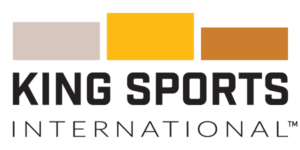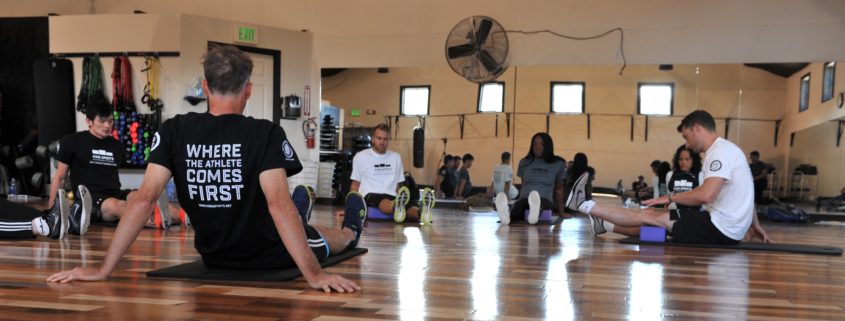What’s holding YOU back as a trainer?
Even been in a place in your career where you wonder why you are not getting where you wanted to go as a trainer? If any of the following apply, you probably should be asking this question – I don’t have enough clients; I don’t get paid enough; I am not sure or confident of my future in this industry, etc. Now if you’ve had the courage to recognize the limitations and ask the question ‘What’s holding me back?’ the next challenge is finding the answer!
Not sure where the weakness is? Is it my qualifications? Do I lack experience? Is it the city I live in? Am I not buffed enough? If you have ever had these questions you are not alone! Should I get more ink? If so arm or leg? Left or right side? (Yes, the last question – the one about the ‘ink’ – or tattoos – is my Aussie humor!)
Ever since getting paid to train another person became a reality (generally speaking during the 1980s) I’ve been helping trainers, instructors, coaches – whatever your job title – find the answers. As I entered the industry in 1980 I was in a position where I became established before anyone knew what I was doing. (Which gave me the experience to write my professional guidance books after some 20 years experience, ‘So You want to Become a….’.)
Take this question for example that I got from a struggling Los Angeles based trainer in the late 1990s:
I have read “So you want to become…” [book] thoroughly. While I agree with your statements it is easier for you with an established record to attract new clients than it is for an “outsider” like me to break in. The reason I’m asking is to see where my weaknesses are – what is holding me back in other words as I’m failing to identify it somehow. I don’t think it is qualifications – I have a bundle – and I don’t think its training experience – I have lots of that…..
I believe just about everyone has this question at some stage of his or her career.
So what are the most commonly looked at solutions? What are the most common mistakes? And what are some of my suggestions for you?
‘GO-TO’ SOLUTIONS
From what I have seen the top 3 most common ‘go-to’ solutions in our industry include:
#1 – Get higher-level qualifications or more certifications
If you have a diploma, get a bachelors degree. If you have a degree, get your masters degree. If you have your maters degree, get your PhD. Or do more short courses with more and different people. Add letters to your name.
Does this work? Yes, it can if you are looking for a job. If you are self-employed, potential clients don’t pay much if any attention to it. I could count on one hand the number of athletes who in four decades have asked what qualifications I have!
I say ‘it can’, in relation to ‘does it work’, because I have seen it work. I have also seen it not work. In my opinion it doesn’t make you a better coach – but it can get you a job.
#2 – Build your C-V
Building your C-V is another popular and potentially effective way to get more work. Provided you are after a job. Here’s how it works. You target a team or job, and hang around there. You get to know the people, you become liked, and you suck up to the decision makers. You exploit the reality that most appointments are decided upon before they are advertised, and it’s someone’s friend. ‘You’ be that person.
Then you take that C-V with that team/athletes name on it, and you leverage it into a higher profile team or individual. And you keep going until you have the best C-V in the market!
Does this work? Absolutely! At least in the short term. Can they coach? That’s pretty irrelevant in this strategy!
#3 – Market Yourself Better
A lot of new entrants into the industry are keen to learn how to market themselves, including on the internet. This is an option, however there are a few things to consider before going down this road.
One of the challenges I suggest you consider before choosing to play in this ‘sandpit’ is the need to understand you are marketing in a profession where the cultural values are that its okay and normal to tell lies to sell yourself. Here’s an example:
The reality is that the lies in fitness far outweigh the truths. …Here’s my premise. It’s OK to tell a lie if you know that it’s a lie… Once a personal trainer or performance specialist knows the truth then, they can tell a little white lie to make the sale or to get the client on board.
Now let me be clear – I don’t agree with or endorse the belief expressed above. It’s not my paradigm or values, however it is from a productive marketer in the industry and therefore it would have had some influence on integrity in the industry.
How are you going to compete in that stinky pond? Tell bigger lies? Get more insights on this challenge in my recent blog ‘Coaching in the Fakebook Era’.
SO WHERE ARE TRAINERS GOING WRONG? (The most common mistakes)
There are two key mistakes made by trainers looking to get past sticking points in their career. Firstly, the point I call ‘jamming a square post in a round hole’. The second is missing the key ingredient.
#1 Jamming a square post in a round hole
Remember the struggling LA based trainer who couldn’t work out what was holding him back? His stated (and yes it was even in writing!) goal was:
To gain a full time professional strength and conditioning position with a professional sports organization or high level training facility.
What were the chances of him attracting athletes? Ah, let me think about that for a moment….Ah…none!
Let’s get this clear – athletes are no better than anyone else, and training athlete’s doesn’t make you any better than anyone else. It’s a common error for so many to want to train athletes because this role has been incorrectly placed on a pedestal!
This trainer was far more suited to the general population, including the fat loss market, where the rules are loose and people are more likely to buy into a ‘story’ – in other words the goals are subjective and the methods to achieve them many.
Why do I say this trainer was more suited to general population? Every market segment has unique traits. Athletes, for example – and especially elite athletes – value discipline, delayed gratification, focus, effort, determination and so on. How much of these qualities did this trainer have? Ah….not much.
Ask yourself – is the target client I am chasing one that resonates with me? Be authentic! Take a path congruent with who you really are and the kind of person that you might inspire. Be yourself. What client sub-group wants more of who and what you are, stand for and have? Any short term ‘success’ from faking or forcing yourself (the post) into an environment (the post hole) will quickly dissolve and those faking it are more than they are ultimately end back at their competence level.
#2 Missing the key ingredient
In about the 1960s a young man said to his mentor ‘Look, this is all the company pays!’, complaining about his paycheck.
To which the mentor replied: “No that is all the company pays YOU!’
The message shared by the late Jim Rohn about his interactions with his mentor Earl Shoaff (in addition to the power of having a mentor!) tell us that what you are getting paid is not what your industry pays. It is simply what your industry pays you!
This applies to all aspects of typical frustration – your client numbers, your client cancellations, your clients reliance on you to be their motivator, your income….
So what’s the missing ingredient? Value. You get paid for the VALUE you bring to the market. Value is measured in the amount of help you give and the number of people you give this amount of value to.
Yes, something is holding you back. Remember – in the words of the wise Jim Rohn:
Don’t take your needs to the market place. Bring your value instead.
…because…
Service to many leads to greatness – great respect, great satisfaction!
The question is….how exactly do you ‘bring your value’ to the market?
Author’s note
The training concepts I developed were developed on athletes, however during the last four decades it’s become very clear that they are equally effective on all humans. In fact I suggest that the elite athlete arena is an excellent testing ground for training theories and concepts. Coaches in the KSI Coaching Program come from all walks of life and apply the KSI way to all types of clients. The KSI way is not limited to athletes, nor are our coaches limited to working with athletes.



